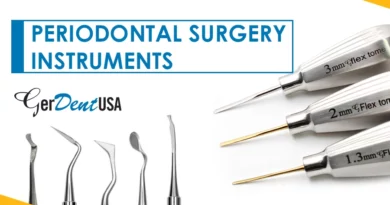Jaw Pain and Dentistry: Causes, Treatments, and When to See a Specialist
Jaw pain is a common issue that can affect daily activities such as speaking, eating, and even sleeping. It can range from mild discomfort to severe, persistent pain that interferes with quality of life. Many people assume jaw pain is temporary and will resolve on its own, but in some cases, it may indicate an underlying dental or medical issue requiring professional treatment.
For those experiencing persistent or worsening discomfort, consulting a jaw pain dentist can be essential in diagnosing the root cause and providing effective treatment. Understanding the causes of jaw pain, available treatments, and when to seek specialized care can help manage symptoms and prevent further complications.
Common Causes of Jaw Pain
Jaw pain can result from various factors, including dental issues, muscle strain, joint disorders, and medical conditions. Some of the most common causes include:
1. Temporomandibular Joint (TMJ) Disorders
TMJ disorders affect the joints that connect the lower jaw to the skull. Symptoms include jaw pain, clicking sounds, difficulty chewing, and stiffness. TMJ issues may arise from teeth grinding, stress, arthritis, or misaligned teeth.
2. Teeth Grinding and Clenching (Bruxism)
Grinding or clenching teeth, often during sleep, puts excessive pressure on the jaw muscles and joints. Over time, this can lead to jaw pain, tooth sensitivity, and enamel wear. Stress and anxiety are common triggers of bruxism.
3. Dental Issues (Cavities, Infections, and Gum Disease)
Untreated cavities, abscesses, and gum infections can cause severe jaw pain. Infections in the teeth or gums may spread to surrounding areas, leading to swelling and discomfort.
4. Malocclusion (Misaligned Bite)
A misaligned bite places uneven pressure on the jaw, leading to discomfort and muscle strain. Orthodontic treatment may be required to correct the alignment and relieve pain.
5. Arthritis in the Jaw Joint
Osteoarthritis or rheumatoid arthritis can affect the jaw joint, causing pain, stiffness, and reduced mobility. Inflammatory conditions can gradually wear down the joint, making movement more difficult.
6. Injury or Trauma
Accidents, falls, or sports-related injuries can damage the jawbone, muscles, or ligaments, resulting in acute or chronic pain. Immediate medical evaluation is necessary for severe injuries.
7. Sinus Problems
Sinus infections or congestion can cause referred pain in the upper jaw and teeth. This is often accompanied by facial pressure, headaches, and nasal congestion.
8. Nerve Disorders
Conditions such as trigeminal neuralgia can cause sharp, severe jaw pain due to nerve irritation. This type of pain often occurs in sudden bursts and requires specialized medical attention.
Effective Treatments for Jaw Pain
Treatment for jaw pain depends on the underlying cause. A dentist or specialist can recommend appropriate solutions based on the diagnosis.
1. Dental Treatments
- Mouthguards and Night Guards: Custom-fitted devices help prevent teeth grinding and clenching, reducing strain on the jaw.
- Dental Procedures: Treating cavities, gum disease, or infections can alleviate pain originating from dental problems.
- Orthodontic Treatment: Braces or aligners may be necessary to correct bite alignment issues.
2. TMJ Therapy
- Physical Therapy: Jaw exercises help strengthen muscles and improve mobility.
- Bite Adjustments: Minor reshaping of teeth can improve bite function and relieve pressure.
- Medication: Anti-inflammatory drugs, muscle relaxants, or pain relievers may help manage discomfort.
3. Lifestyle and Home Remedies
- Hot and Cold Therapy: Applying a warm compress can relax jaw muscles, while ice packs reduce inflammation.
- Stress Management: Meditation, deep breathing, and relaxation techniques can help prevent stress-related teeth grinding.
- Soft Diet: Avoiding hard or chewy foods can reduce strain on the jaw during flare-ups.
4. Advanced Treatments for Severe Cases
- Botox Injections: These may help relax overactive jaw muscles, reducing tension and discomfort.
- Surgery: In rare cases, surgical intervention may be necessary for severe TMJ disorders, joint damage, or structural abnormalities.
When to See a Specialist
While mild jaw pain may improve with self-care, professional evaluation is necessary if symptoms persist or worsen. Consider seeing a specialist if you experience:
- Persistent pain lasting more than a few days
- Difficulty opening or closing the mouth
- Clicking, popping, or grinding sounds in the jaw
- Swelling or tenderness around the jaw joint
- Pain spreading to the ears, neck, or head
- Locking of the jaw
A dental specialist trained in jaw disorders can assess symptoms, perform diagnostic tests, and recommend appropriate treatment options.
Preventing Jaw Pain
Taking preventive measures can reduce the risk of developing jaw pain and related complications. Here are some tips to protect your jaw health:
- Practice good oral hygiene to prevent dental infections and gum disease.
- Avoid excessive gum chewing or biting on hard objects.
- Manage stress levels to reduce teeth grinding and clenching.
- Maintain proper posture, especially when using electronic devices, to prevent jaw tension.
- Wear protective gear during contact sports to avoid injuries.
Conclusion
Jaw pain can stem from various dental, muscular, and medical causes. Identifying the root cause is essential for effective treatment and long-term relief. While home remedies may provide temporary relief, persistent or severe symptoms should be evaluated by a dental professional. Seeking timely care from a specialist ensures proper diagnosis, personalized treatment, and improved jaw function.
If you experience ongoing jaw discomfort, consulting a qualified dentist can help address the issue before it worsens. Prioritizing oral health and adopting preventive habits can also reduce the likelihood of future jaw pain.




